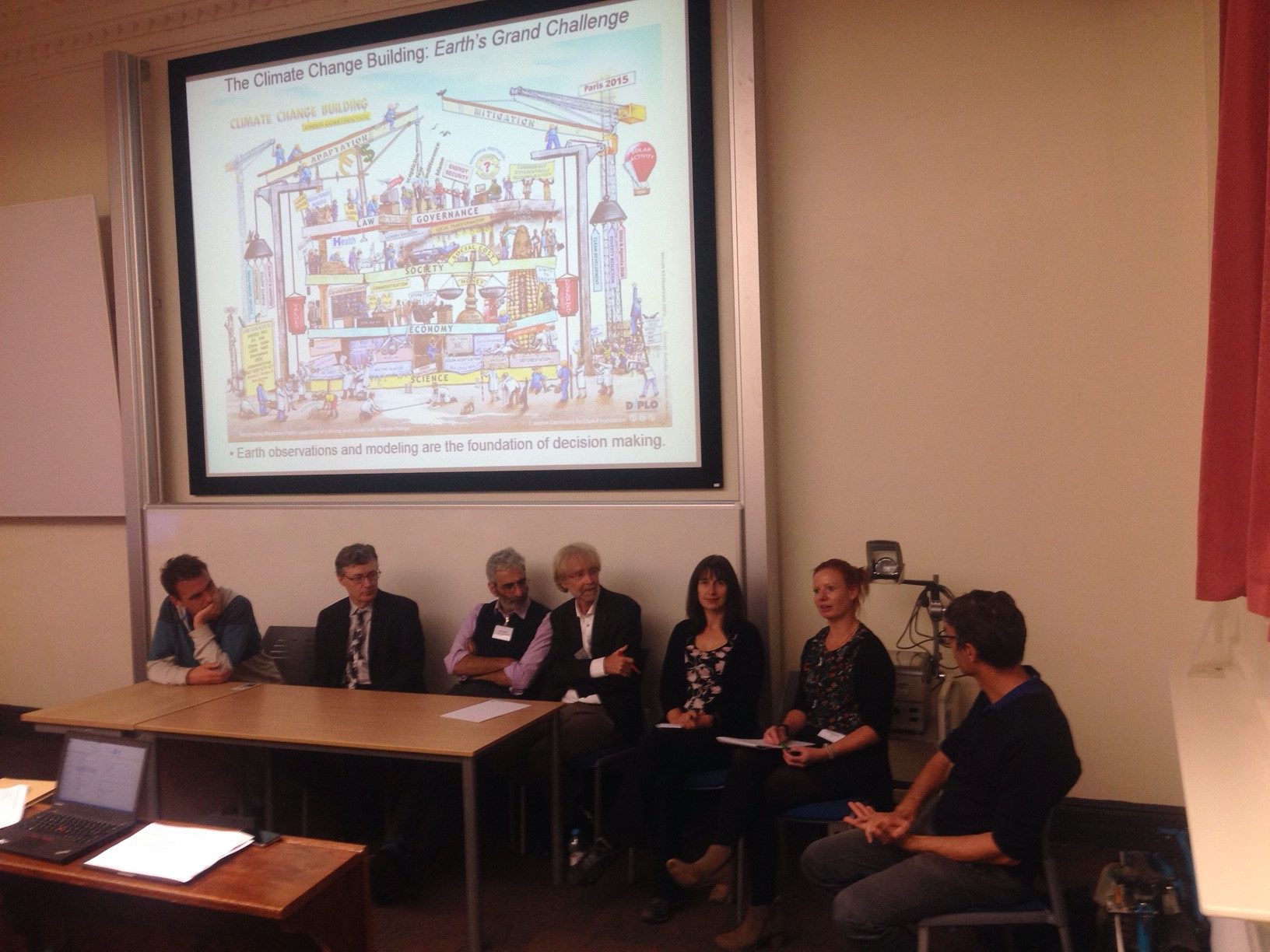Learning from the best: experts train the next generation of assessment authors

Experts from global scientific assessments, policy and communications have come together at the University of Leeds to teach the next generation of potential lead authors about the process.
The trainers, whose experiences include assessments for the Intergovernmental Panel on Climate Change (IPCC), National Oceanic and Atmospheric Administration (NOAA), World Meteorological Organisation (WMO), a United Nations task force and the Intergovernmental Science-Policy Platform on Biodiversity and Ecosystem Services (IPBES), are speaking at a course designed and delivered by the Priestley Centre for early career researchers.
The three-day MAPERS (Making Assessments for Policy for Environmental Research Scientists) course is funded by the Natural Environment Research Council (NERC) and provides bursaries for 30 PhD students and post doctoral researchers. Attendees receive training in how to undertake assessments for climate, air quality and ozone, biodiversity, and ecosystem services, as well as learning about data visualisations and the policy world.
High profile speakers for the NERC Advanced Training Short Course include:
Lindsay Stringer, Professor of Environment and Development at the University of Leeds (IPBES, IPCC);
Mat Evans, Professor of Atmospheric Chemistry Modelling at the University of York (International Global Atmospheric Chemistry Tropospheric Ozone Assessment Report steering committee);
Keith Shine, Regius Professor of Meteorology and Climate Science at the University of Reading (IPCC, WMO);
David Fahey, Director of the Chemical Science Division at NOAA (IPCC, WMO);
Jan Fuglestvedt, Research Director at the Center for International Climate and Environmental Research (CICERO) in Oslo, Norway (IPCC, WMO, and Norwegian government climate advisor);
Jolene Cook, head of the Climate Science team at Department of Business, Energy and Industrial Strategy (represented the UK/EU in United Nations Framework Convention on Climate Change (UNFCCC) negotiations; the scoping, review and approval of IPCC reports; and negotiations of the Convention on Biological Diversity);
Steve Smith, Head of Science at the Committee on Climate Change (CCC);
Jan Minx, Professor for Science-Policy and Sustainable Development at the Hertie School of Governance, Mercator Research Institute on Global Commons and Climate Change in Berlin (former head of IPCC Technical Support Unit);
Piers Forster, Director of the Priestley International Centre for Climate (IPCC).
By the end of the course each group of attendees will produce a peer-reviewed executive policy summary with a data visualisation relevant to their discipline, to be presented at a mock plenary.
Giving his experiences of intensive work on international assessments for the IPCC, Piers Forster spoke of the long hours and detailed negotiations involved but promised, “It’s a fantastic way to save the world”.
By the end of the course, the participants will be ready to take the next steps to becoming effective lead authors and, eventually, perhaps, to do just that.
